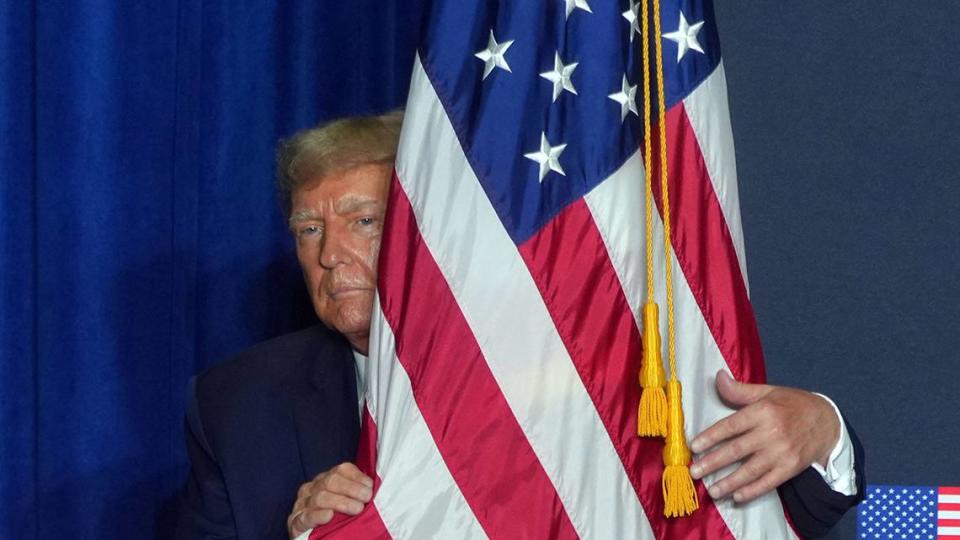As much as I wish Trump would be quiet, it’s better to let him speak. Here’s why | Opinion
Judge Tanya Chutkan should resist the overwhelming temptation to put a gag order on Donald Trump in advance of his trial in federal court, scheduled to begin on March 4, 2024. Undoubtedly, it is frustrating for her and the prosecution to hear Trump disparage them, denounce the proceedings and discuss the witnesses and the evidence. But a gag order, like the one that was issued by Justice Arthur Engoron who is overseeing Trump’s civil fraud trial, would infringe freedom of speech and likely do little good.
The Supreme Court has long said that, above all, the First Amendment prevents prior restraints against speech. A court order prohibiting speech is a classic form of a prior restraint. Famously, in the Pentagon Papers case, New York Times Company v. United States, the Supreme Court refused to allow courts to issue orders preventing the publication of a classified history of the Vietnam War, stressing that there is a strong presumption against such gag orders on the press.
Opinion
Similarly, the court has strongly disapproved of orders keeping the press from reporting on high profile criminal cases. In an effort to protect a defendant’s Sixth Amendment right to a fair trial, some courts issue orders preventing pretrial coverage of high-profile cases.
In Nebraska Press v. Stuart, in 1976, the court disapproved of such orders, holding that courts are only allowed to do so if it can be proven that pretrial publicity would prevent a fair trial, that there would be no other way to ensure one and that such a gag order would be likely to succeed. In the almost half century since the decision, virtually no such court order has been allowed.
The Supreme Court has not yet ruled on when gag orders on lawyers and other trial participants are permissible. Special counsel Jack Smith has asked for one against Trump, and Judge Chutkan will hold a hearing on this on Oct. 16. In his motion to the court, Smith says that Trump has continued making statements “that pose a substantial likelihood of material prejudice to this case.” If granted, it would keep Trump from speaking out against the proceedings or discussing potential witnesses.
On Sept. 25, Trump’s lawyers filed an opposition to the motion for a gag order that was an attack on the prosecutor and the proceedings. The brief described the Justice Department’s motion as “an obvious attempt by the Biden administration to unlawfully silence its most prominent political opponent.”
“(K)eenly aware that it is losing ... the prosecution seeks to unconstitutionally silence President Trump’s (but not President Biden’s) political speech on pain of contempt,” Trump’s brief states.
Of course, it’s not the Biden administration that’s bringing this prosecution: There is an independent counsel, and the Justice Department has been clear that it is playing no role in the case. The rhetoric of the Trump brief is sure to anger the judge as it is far less a legal argument than an attempt by Trump to appeal to his political base.
Yet, Trump does have free speech rights, however much I loathe what he has to say. Anyone, including him, can criticize a prosecution, a prosecutor and a judge. Of course, no one has the First Amendment right to intimidate witnesses, but there is no indication that his speech has risen to that level.
There is a concern that his incessant criticism of the proceedings will undermine their legitimacy and even lead to violence. But the government, including a court, can never try to bolster its legitimacy by silencing its critics.
The classic justification for a gag order is to protect a defendant’s right to a fair trial by ensuring that potential jurors are not influenced by pretrial publicity. But given all of the publicity surrounding what occurred on Jan. 6 and on Trump himself, it is impossible to see how more speech about it would matter.
If Chutkan were to impose a gag order on Trump, she must be prepared to enforce it if he violates its terms. In other words, she must be prepared to put him in jail for contempt if he speaks out despite the gag order. It seems likely Trump would do so, whether because he can’t help himself or precisely because he wants to provoke the judge. Trump always wants to portray himself as the martyr and victim. A gag order will do this, and putting him in jail for contempt would, in a perverse way, be a reward for him.
As much as I wish Trump would be quiet, and as appealing as a gag order on him seems, the better course is to let him speak.
Erwin Chemerinsky is the dean and a professor at the UC Berkeley School of Law.



